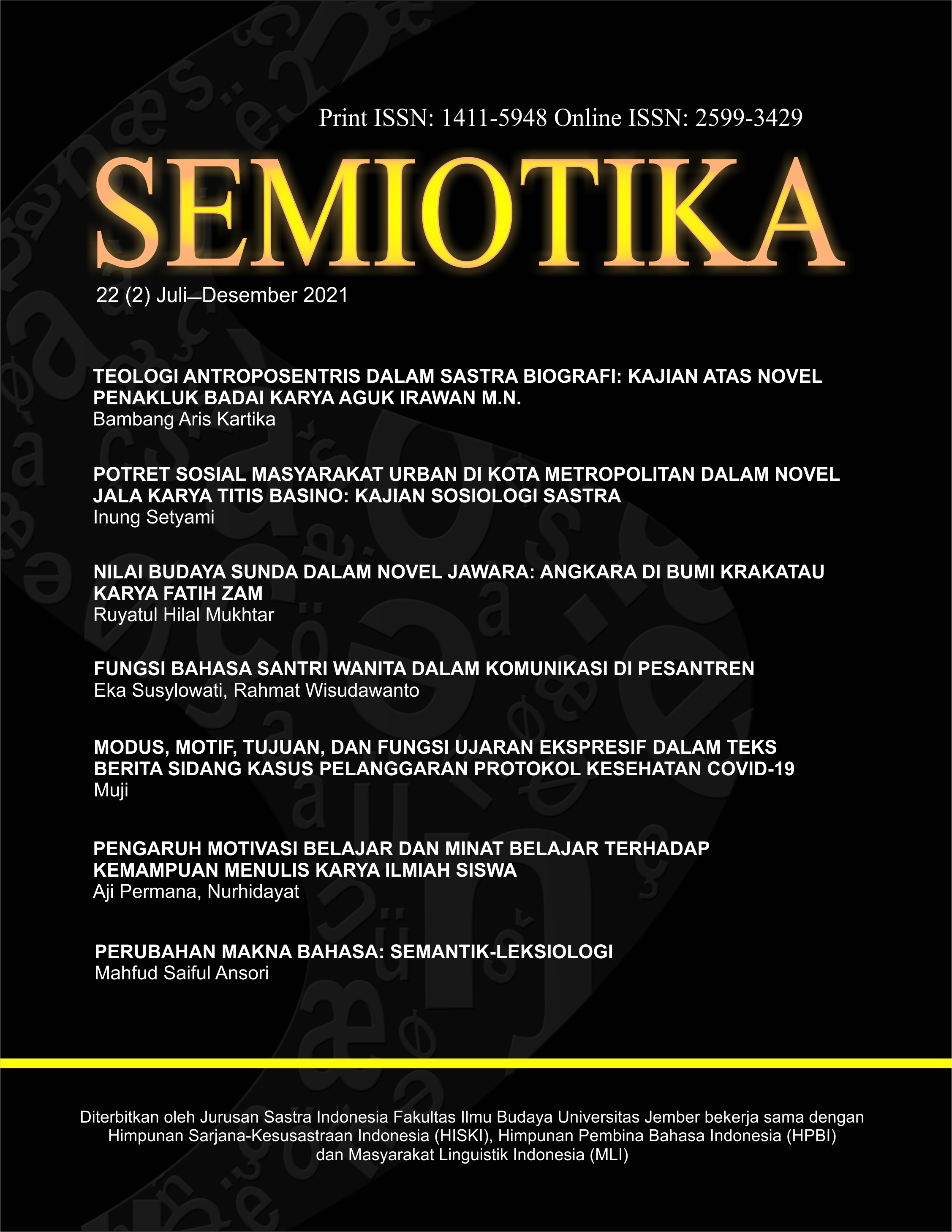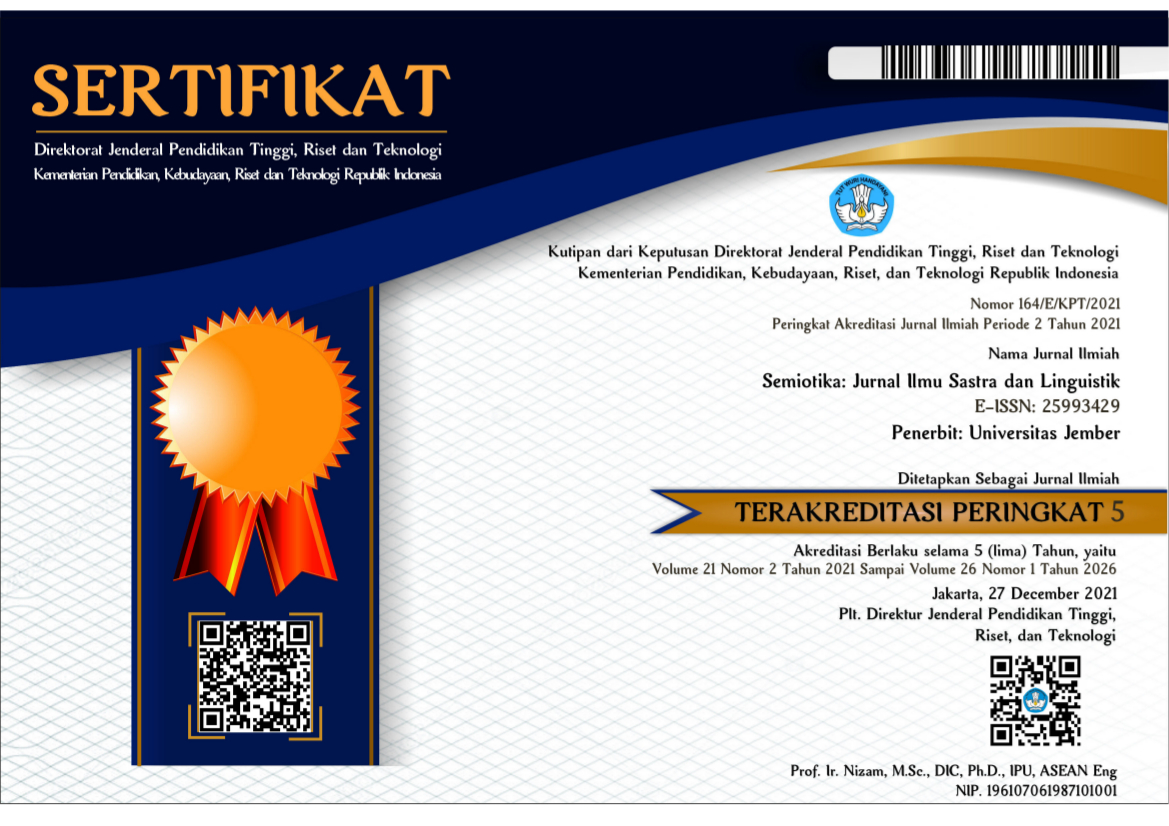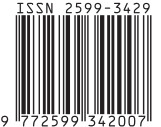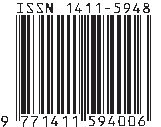PERUBAHAN MAKNA BAHASA: SEMANTIK-LEKSIOLOGI
Abstract
The article aims to discuss meanings and changes that occur and the factors that influence these meaning changes. In addition, it also discusses the impact of changes in the sense which sometimes lead to guidelines to the new understandings, beliefs, principles, or paradigms for a language-speaking community. The research method used is qualitative research, namely by explaining the existing data with words or statements, not with numbers. The focus of the study uses a conceptual approach about changes in meaning in the semantic aspect of lexicology. The study results show that the forms and procedures for changing meaning depend on their use in an utterance or written sentence, including addition, subtraction, or total change, both in terms of quantity and quality of words. The changes are in the form of generalization (tawsi' al-Makna), specification (tadhyiq al-Ma'na), metonymy (taghyir al-Makna), amelioration (ruqo al-Dilalah), and pejoration (Inhithath al-Makna). It is also in the technical consequences of misconceptions, frictions, misunderstanding, paradigm shifts or religious beliefs, and even the emergence of disintegration. The shifting meaning happens when the meaning changing is not managed or accommodated properly by the language speakers.
SEMIOTIKA has CC-BY-SA or an equivalent license as the optimal license for the publication, distribution, use, and reuse of scholarly work. Authors who publish with this journal retain copyright and grant the journal right of first publication with the work simultaneously licensed under a Creative Commons Attribution-ShareAlike 4.0 International License that allows others to share the work with an acknowledgment of the work's authorship and initial publication in this journal.
Attribution-ShareAlike
CC BY-SA










